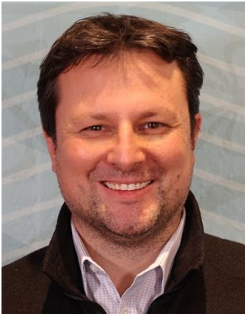VLDB 2021: Keynote Speakers
Date: 17Aug
 Towards instance-optimized data systems
(MIT)
Download Paper
Abstract:
Recently, there has been a lot of excitement around ML-enhanced (or learned) algorithms and data
structures. For example, there has been work on applying machine learning to improve query
optimization, indexing, storage layouts, scheduling, log-structured merge trees, sorting,
compression, sketches, among many other data management tasks. Arguably, the ideas behind these
techniques are similar: machine learning is used to model the data and/or workload in order to
derive a more efficient algorithm or data structure. Ultimately, what these techniques will allow
us to build are “instance-optimized” systems; systems that self-adjust to a given workload and data
distribution to provide unprecedented performance and avoid the need for tuning by an administrator.
Towards instance-optimized data systems
(MIT)
Download Paper
Abstract:
Recently, there has been a lot of excitement around ML-enhanced (or learned) algorithms and data
structures. For example, there has been work on applying machine learning to improve query
optimization, indexing, storage layouts, scheduling, log-structured merge trees, sorting,
compression, sketches, among many other data management tasks. Arguably, the ideas behind these
techniques are similar: machine learning is used to model the data and/or workload in order to
derive a more efficient algorithm or data structure. Ultimately, what these techniques will allow
us to build are “instance-optimized” systems; systems that self-adjust to a given workload and data
distribution to provide unprecedented performance and avoid the need for tuning by an administrator.
In this talk, I will first provide an overview of the opportunities and limitations of current
ML-enhanced algorithms and data structures, present initial results of SageDB, a first
instance-optimized system we are building as part of DSAIL@CSAIL at MIT, and finally outline
remaining challenges and future directions.
Bio:
Tim Kraska is an Associate Professor of Electrical Engineering and Computer Science in MIT's
Computer Science and Artificial Intelligence Laboratory, co-director of the Data System and AI Lab
at MIT (DSAIL@CSAIL), and co-founder of Einblick Analytics. Currently, his research focuses on
building systems for machine learning, and using machine learning for systems. Before joining MIT,
Tim was an Assistant Professor at Brown, spent time at Google Brain, and was a PostDoc in the AMPLab
at UC Berkeley after he got his PhD from ETH Zurich. Tim is a 2017 Alfred P. Sloan Research Fellow
in computer science and received several awards including the VLDB Early Career Research
Contribution Award, the VMware Systems Research Award, the university-wide Early Career Research
Achievement Award at Brown University, an NSF CAREER Award, as well as several best paper and demo
awards at VLDB and ICDE.
Date: 18Aug
 Knowledge Graphs 2021: a Data Odyssey
(Max Planck Institute for Informatics and Saarland University, Germany)
Download Paper
Abstract:
Machines with comprehensive knowledge of the world's entities and their relationships has been a
long-standing vision and challenge of AI. Over the last 15 years, huge knowledge bases, also known
as knowledge graphs, have been automatically constructed from web data, and have become a key asset
for search engines and other use cases. Machine knowledge can be harnessed to semantically interpret
texts in news, social media and web tables, contributing to question answering, natural language
processing and data analytics.
Knowledge Graphs 2021: a Data Odyssey
(Max Planck Institute for Informatics and Saarland University, Germany)
Download Paper
Abstract:
Machines with comprehensive knowledge of the world's entities and their relationships has been a
long-standing vision and challenge of AI. Over the last 15 years, huge knowledge bases, also known
as knowledge graphs, have been automatically constructed from web data, and have become a key asset
for search engines and other use cases. Machine knowledge can be harnessed to semantically interpret
texts in news, social media and web tables, contributing to question answering, natural language
processing and data analytics.
This talk reviews these advances and discusses lessons learned. It highlights the role of "DB
thinking" in building and maintaining high-quality knowledge bases from web contents. Moreover, the
talk identifies open challenges and new research opportunities. In particular, extracting
quantitative measures of entities (e.g., height of buildings or energy efficiency of cars), from
text and web tables, presents an opportunity to further enhance the scope and value of knowledge
bases.
Bio:
Gerhard Weikum is a Scientific Director at the Max Planck Institute for Informatics in Saarbruecken,
Germany, and an Adjunct Professor at Saarland University. He co-authored a comprehensive textbook on
transactional systems, received the VLDB Test-of-Time Award 2002 for his work on automatic database
tuning, and is one of the creators of the YAGO knowledge base which was recognized by the WWW
Test-of-Time Award in 2018. Weikum is an ACM Fellow and elected member of various academies. He
received the ACM SIGMOD Contributions Award in 2011, a Google Focused Research Award in 2011, an ERC
Synergy Grant in 2014, and the ACM SIGMOD Edgar F. Codd Innovations Award in 2016.
